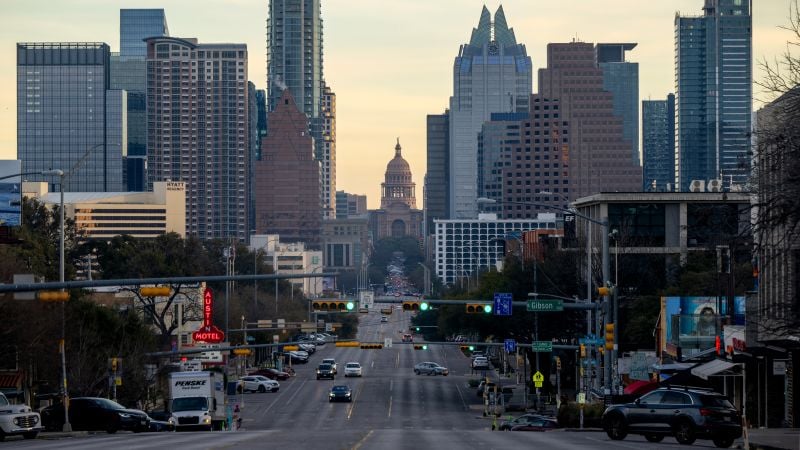A new law in Texas requires convicted drunk drivers to pay child support if they kill a child’s parent or guardian, according to House Bill 393.
The law, which went into effect Friday, says those convicted of intoxication manslaughter must pay restitution. The offender will be expected to make those payments until the child is 18 or until the child graduates from high school, “whichever is later,” the legislation says.
Intoxication manslaughter is defined by state law as a person operating “a motor vehicle in a public place, operates an aircraft, a watercraft, or an amusement ride, or assembles a mobile amusement ride; and is intoxicated and by reason of that intoxication causes the death of another by accident or mistake.”



A little philosophical, but the drunk person who decides to drive is a different person than the sober person who decided to drink in the first place. Punishing the sober person for the decisions made by the drunk version of themselves is maybe misguided, except for as a deterrent that says “don’t turn into a drunk person that can make stupid decisions”
I’m not sure what the right answer is to this problem. Just some food for thought
That’s just about the least convincing take I’ve ever heard. You can absolutely punish the person who made the decision to impair themselves beyond the ability to make rational decisions. They came from the same decision to get drunk by the sober person. A person who has a propensity to get drunk and drive is a danger to everyone and needs to be dealt with accordingly.
I think you missed my point. My point is that the crime the sober person makes is deciding to become impaired. That’s different from saying the sober person made a decision to drive drunk - the drunk person made that decision, not the sober person. There are 2 different people here in this scenario. Whether the law should treat it that way is a separate discussion. It would have some similarities with a “temporary insanity” defense.
I did not miss your point. I thought it was entirely unconvincing. The other person is the same person just with the disadvantage of being fucked up.
Edit. Furthermore, I believe that the drunk self is just an amplified version of the sober self. My theory is that if your drunk self is capable of doing bad, so is your sober self.
Hi friend, you do you, but it’s the same idea as this: https://old.reddit.com/r/philosophy/comments/peftk6/a_death_row_inmates_dementia_means_he_cant/
You’re of course free do disagree, but I’ve the sense that you haven’t really considered the issue.
I also disagree with the oft-repeated sentiment that the drunk self is an amplified version of the sober self. I think the simple reality is that alcohol changes our behaviors and judgments.
Then I believe you’re an enabler and should probably rethink what you’re willing to tolerate
Do you really think I haven’t considered your idea? It is utterly unconvincing. Dementia and drunkenness are not the same thing, and I’d say if a person can’t remember doing something heinous, that is not a compelling reason either.
I think dementia and acts committed while drunk have some similarities when it comes to assigning responsibility (and punishment), but yes they’re not the same. One is involuntary, and the other is voluntary. The voluntary act to get drunk is what I called out in my first post. But after that initial act, I think the 2 scenarios are more alike than they are different.
Ok. You have clearly said that already. If you have nothing else, then I guess we can agree to disagree
I’ve thought about that before, personally, drunk driving is SO UNTHINKABLE to me, it’s never even occurred to me at any level of drunk. All the way down to near blackout drunk.
If the thought of killing someone doesn’t deter you that much, then maybe definitely ruining the rest of your life will have that effect. And if you really can’t trust your drunk self, if drunk you is so much more stupid, then yeah, society needs to scare you out of drinking in the first place.
deleted by creator
Yeah, exactly. It’s the same reason why punishment is only a deterrent to crime to certain extent, and it doesn’t work absolutely.
You could make the punishment for shoplifting be summary execution, and it would still happen on a regular basis. Because people think they won’t get caught, even with evidence of lots of people having been caught before.